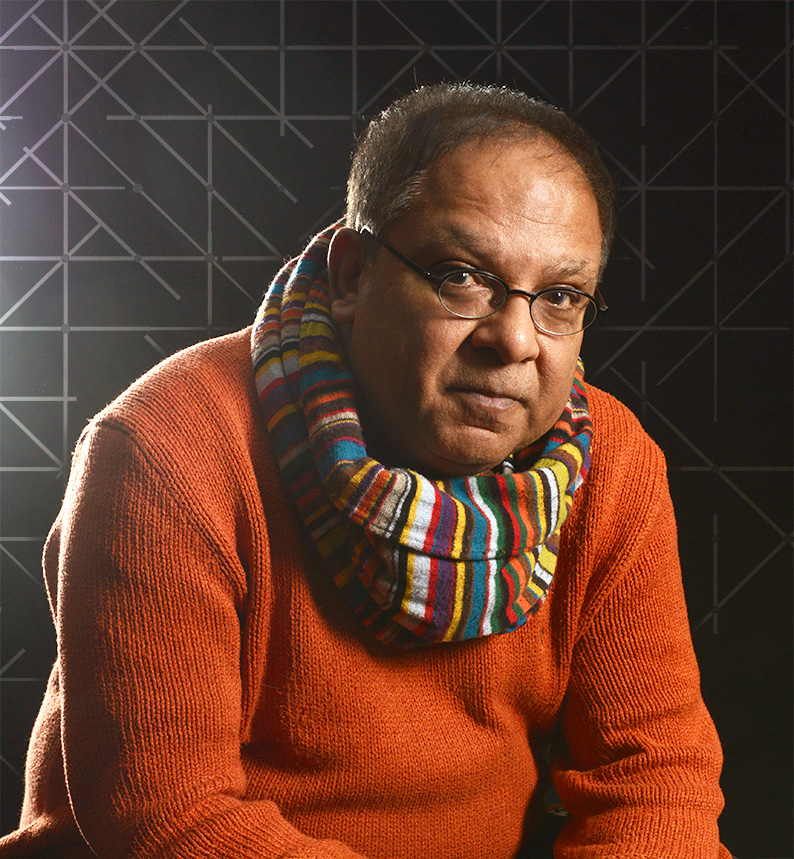Calgary was booming with oil. On my arrival, I bumped into fellow immigrant accountants all in their mid-twenties—all Ismaili Muslims educated in England like me. In the evenings they disappeared to pray at their mosque. “Why don’t you join us. After all, you’re one of us.” I wasn’t. Having been born an Ismaili, I was adopted by an Anglican family at the age of five.
My lack of interest spurred them to cajole me even more. Fed up, I asked “What’s the most difficult service to perform in our religion?” They answered in a flash, “Attending the 5 a.m. morning prayers.”
“Alright, I’ll give it a shot for a month. If it leaves me cold, I’ll drop out. Then no more talk from you to persuade me otherwise. Deal?”
Knowing I had no car, they advised me a volunteer could wake me up. A minibus would collect me to and from the mosque. Breakfast was thrown in.
On the rare occasions I had attended mosque, wherever in the world, the evening service was full of glitz and glamour, with each congregant vying to outdo the other in Western suit and outfit. I expected the dawn service to be the same. Going to mosque, I could kill two birds with one stone. I could wear my suit and ask the driver to drop me off at the office. That way, I’d have a head start and finish early to enjoy the summer.
The minibus arrived, packed with what appeared to be unwashed, smelly, illegal, geriatric immigrants. The youngest was the volunteer driver in his early sixties. Men were unshaven. Women wore no makeup. They were garbed in hand-me-downs. I sat gingerly among them, ever mindful not to wrinkle my suit tail.
Someone greeted me with “Ya Ali Madat.” May Allah be with you. Without hesitation, I answered with the centuries old refrain, “Mowlali Madat.” May Allah be with you also. When the man continued to talk in Kutchi, I ran out of words. It was surprisingly easy to understand him, but I couldn’t respond in a language I had last spoken at the age of five.
Above the body odour, rose the tantalizing aroma of dishes my grandmother had once cooked for me. Garlic, mingled with ginger, cinnamon, and nutmeg—all arising from chinaware wrapped in newspaper. Our breakfast I hoped.
It took thirty minutes to collect the rest of the attendees before reaching our mosque, a converted warehouse in the middle of a dark industrial park.
The prayer hall was pitch black. There was a deep arrhythmic sound of snoring. I sat down cross-legged and waited. Eventually a voice called us to prayer and switched the lights on.
Within a week, because of my British accent, I was elevated to read firmans from our spiritual leader, the Aga Khan, based in France. The firmans themselves were innocuous, urging us to lead a virtuous life and fit into general society. I read aloud, doubting how much was understood from the elderly Kutchi speaking crowd.
It was mandatory to start my speech with “Allah huma sale ala Muhammadin wa aale Muhammad.” May the praise of Allah be upon Muhammad. I glanced up at my audience. Most had their eyes closed. A number were snoring intermittently. Was anyone listening?
A sudden mischief took hold of me. Instead of saying the peroration once, I continued to repeat it ever louder and faster, like Ravel’s Bolero. One by one, people joined in, chanting trancelike, their heads bobbing up and down, bowing to the floor, competing with each other to stay in rhythm, building up to a crescendo. Some faced the entrance in earnest, as though expecting our spiritual leader to appear in person.
The service ended abruptly. I was called before the Mukhi (the mosque leader). He reminded me of a lemur—large, gentle endearing eyes, an emasculated body with a face to match.
Instead of admonishing, he asked “Have you eaten breakfast? Come join me.” A strange sadness crept into his eyes. “You are such an excellent reader, what happened to you today?” he asked tentatively.
Sitting beside my Mukhi, tears welled up within me. How could I explain I had experienced an epiphany? Had come to realize how alienated I had become towards this mosque and community, after all my years of absence.
Never again was I invited to lead or read to the congregation. I survived the month then retired from active service. Had gained no spiritual awakening, only the minor satisfaction of silencing my Ismaili friends, who continued to socialize with me bar the cajoling.


